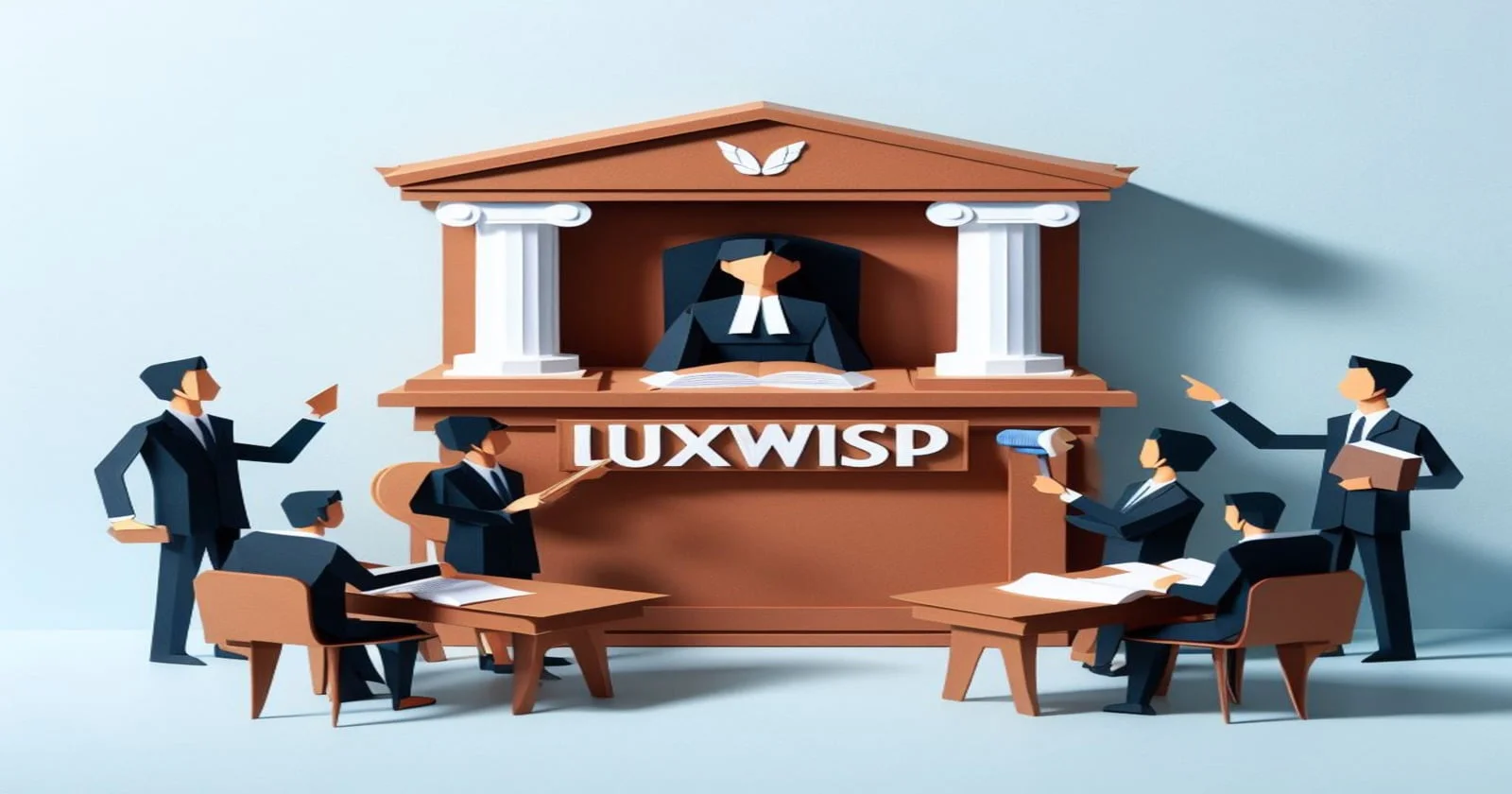The pros of being a guardian dog owner are that it can be cost-effective due to no upfront expense for high-quality breeds, and provides a sturdy support network. Additionally, guardian dogs come with clear responsibilities and can offer a trial period to assess if the arrangement is suitable.
The cons of being a guardian dog owner are possible breeding obligations and potential health risks. Additionally, contractual boundaries may limit the owner’s freedom, and the commitment tends to be long-term. The owner might also not hold legal responsibility for the dog’s actions, which raises potential issues.

Key Takeaways
- Top quality dog at no upfront cost
- Health testing covered by the breeder
- Monetary compensation for each litter
- Breeder pays for spay/neuter upon retirement
| Pros of Being a Guardian Dog Owner | Cons of Being a Guardian Dog Owner |
|---|---|
| Improved Living Conditions for the Dog | Limited Initial Ownership Rights |
| Cost-effective Ownership | Breeding Obligations |
| Strong Support Network | Potential Health Risks |
| High-Quality Breeds | Contractual Boundaries |
| Clear Responsibilities | Long-Term Commitment |
| Emotional Rewards | Limited Choice |
| Gaining Full Ownership | Emotional Challenges |
| Vetted Selection Process | Potential Training Demands |
| Structured Training and Care | Unexpected Costs |
| Community Engagement | Risk of Contract Termination |
Pros of Being a Guardian Dog Owner

- Improved Living Conditions for the Dog: Guardian dog ownership ensures that the dog gets to live in a nurturing home environment rather than a kennel. Such environments are typically warmer, more engaging, and more affectionate for dogs. Being part of a family and enjoying daily human interaction can significantly improve a dog’s emotional well-being.
- Cost-effective Ownership: Guardian owners often get the dog at a substantially reduced price or even free of charge. This can be a huge financial advantage for families or individuals desiring a pet, allowing them to provide a loving home without the steep upfront cost that can come with purchasing a dog.
- Strong Support Network: Since the dog’s primary ownership lies with the breeder, guardian owners often have a built-in support system for advice or assistance. Whether it’s about training, health concerns, or general care, the breeder’s expertise can be a valuable resource.
- High-Quality Breeds: Breeders typically offer high-quality, well-bred dogs. As a guardian dog owner, one gets the benefit of having a dog that comes from a good lineage, potentially with fewer health problems and a well-balanced temperament.
- Clear Responsibilities: The formal contract between the breeder and the guardian owner lays out all responsibilities. This can provide clarity for the guardian owner, ensuring they know exactly what’s expected of them and avoiding potential misunderstandings down the line.
- Emotional Rewards: Knowing that they are providing a nurturing environment for a dog that could otherwise be in a kennel can be emotionally fulfilling. Many guardian dog owners take pride in their role, cherishing the opportunity to make a positive impact in the dog’s life.
- Gaining Full Ownership: After the dog is retired from breeding, full ownership usually transfers to the guardian family. This ensures that the bond formed over the years doesn’t get broken, allowing the family and dog to continue their journey together.
- Vetted Selection Process: The fact that breeders have strict criteria for selecting guardian homes implies that the dog is likely going to be in a safe and caring environment. This rigorous selection process ensures that only committed and suitable families get selected.
- Structured Training and Care: Guardian dog owners have a clear directive to provide training, regular vet visits, and general well-being. This ensures that the dog is not only loved but also well-taken care of in terms of health and behavior.
- Community Engagement: Being part of a guardian dog owner program often means being part of a community. This can lead to networking opportunities, shared experiences, and the joy of being around other dog lovers.
Cons of Being a Guardian Dog Owner

- Limited Initial Ownership Rights: Even though the guardian family raises and cares for the dog, they don’t initially own it. This can feel limiting, especially when making decisions that concern the dog, as the primary rights still lie with the breeder.
- Breeding Obligations: Since breeding rights are retained by the breeder, the guardian family might occasionally have to part with their pet for breeding purposes. This can be emotionally taxing for both the family and the dog, especially if they form a close bond.
- Potential Health Risks: Breeding dogs can sometimes face health complications. As the primary caregivers, the guardian family might have to deal with the stress and emotional turmoil of seeing their pet go through such situations.
- Contractual Boundaries: Being tied down to a contract might feel restrictive for some. There might be clauses that they don’t necessarily agree with, and navigating these legalities can be daunting.
- Long-Term Commitment: The role demands a commitment that spans the dog’s entire life. This might not suit everyone, especially those who are unsure of their long-term plans or face potential life changes.
- Limited Choice: The guardian family doesn’t always get to choose the dog they’ll care for. This lack of choice can be challenging, especially if they have specific preferences in terms of breed, age, or temperament.
- Emotional Challenges: Forming a bond with the dog and then having to occasionally part with it for breeding can be challenging emotionally. It requires the family to navigate their attachment while being conscious of their obligations.
- Potential Training Demands: Some dogs might come with particular behavioral traits that demand intensive training. Not everyone is equipped or prepared to handle these challenges.
- Unexpected Costs: Even if the dog is obtained at a reduced price or for free, there might be unexpected costs related to health, training, or other unforeseen events.
- Risk of Contract Termination: If, for any reason, the guardian family cannot fulfill their obligations, the contract might be terminated. This can lead to the painful experience of parting with a beloved pet.
Financial Benefits

One of the financial benefits of being a Guardian Dog Owner is that they can receive monetary compensation for each litter. When a Guardian Dog successfully produces a litter, the breeder will typically provide financial compensation to the owner. This compensation serves as a way to acknowledge the owner’s contribution to the breeding program and the care they’ve provided to the dog.
The amount of compensation can vary depending on the specific breeding program and contract agreement between the breeder and the Guardian Dog Owner. In addition to the monetary compensation, the breeder often covers all the breeding and care costs associated with the dog, including health testing, veterinary expenses, and any necessary medications.
This financial support can greatly reduce the expenses that would normally be incurred by a dog owner. It allows Guardian Dog Owners to enjoy the benefits of having a dog without the financial burden that often comes with it.
Enhanced Breeding Program
The enhanced breeding program allows breeders to improve the quality and genetic diversity of their dogs through strategic breeding practices. By carefully selecting and pairing dogs with desirable traits, breeders can enhance the overall characteristics of their breeding program. This can include improving temperament, health, and conformation standards.
One of the main advantages of an enhanced breeding program is the ability to produce puppies with predictable and desired traits. Breeders can strategically pair dogs with compatible traits to ensure the offspring inherit the best qualities from both parents. This can result in puppies that are more likely to meet breed standards and have the desired characteristics that potential owners are looking for.
Additionally, an enhanced breeding program allows breeders to address any genetic health concerns within the breed. By conducting thorough health screenings and only breeding dogs that are free from genetic disorders, breeders can work towards producing healthier puppies. This can help to reduce the incidence of common health issues within the breed and contribute to the overall well-being of the dogs.
Furthermore, an enhanced breeding program also promotes genetic diversity within the breed. By introducing new bloodlines and incorporating dogs from different lines, breeders can help prevent inbreeding and maintain a healthy gene pool. This can result in stronger and more resilient dogs that are less prone to genetic disorders and have a higher overall genetic diversity.
Limited Dog Population

A few drawbacks of being a guardian dog owner are the limited dog population and the potential difficulties in finding compatible breeding partners. Here are some reasons why the dog population may be limited for guardian dog owners:
- Selective Breeding: Guardian dog breeders are focused on maintaining the quality and integrity of their breeding program. As a result, they carefully select only a few dogs that meet their breeding standards. This means that there may be a limited number of dogs available for guardianship.
- Breeding Restrictions: Guardian dogs are typically bred for specific traits, such as health, temperament, and conformation. Breeders often have strict guidelines and restrictions on breeding their dogs, which can further limit the dog population available for guardianship.
- Limited Breeding Age: Female guardian dogs are usually retired after a certain number of litters or a specific age. This means that their breeding years are limited, resulting in a smaller population of breeding females. Similarly, male guardian dogs are also retired after a certain age, reducing the number of available breeding partners.
Despite these limitations, many guardian dog owners find the benefits of the program outweigh the drawbacks. They appreciate the opportunity to contribute to the breeding program and have a top-quality dog as their companion.
Breeder’s Coverage of Expenses
The breeder covers all necessary expenses related to breeding and care. This includes the cost of health testing, which is crucial to ensure the quality and health of the breeding dogs. The breeder also covers the costs of any necessary veterinary care that’s directly related to the breeding process. This means that if the female dog requires any prenatal or postnatal care, the breeder will cover those expenses. Furthermore, the breeder is also responsible for the cost of spaying or neutering the dog once they retire from breeding. This can be a significant financial relief for guardian dog owners, as these expenses can often be quite substantial.
When becoming a guardian dog owner, one of the major advantages is that the breeder takes on the financial responsibility for all breeding-related expenses. Overall, the breeder’s coverage of expenses greatly benefits guardian dog owners and allows them to enjoy the experience of breeding without the financial burden.
Lifelong Pet Companionship

Having a guardian dog provides owners with a lifelong bond of companionship. This unique relationship offers numerous benefits and creates a deep connection between the owner and the dog. Here are three reasons why lifelong pet companionship as a guardian dog owner is so rewarding:
- Unconditional Love and Loyalty: Guardian dogs are known for their unwavering devotion to their owners. They offer unconditional love and loyalty, always being there to provide comfort and support. Whether it’s a playful game of fetch or a quiet evening snuggled up on the couch, guardian dogs are constant companions that bring joy and companionship to their owners’ lives.
- Emotional Support: Guardian dogs have a remarkable ability to sense their owners’ emotions and provide comfort during difficult times. They offer a listening ear, a warm cuddle, and a sympathetic presence, which can be incredibly comforting and soothing. This emotional support is invaluable and can make a significant difference in the owner’s well-being.
- Enhanced Quality of Life: The presence of a guardian dog enriches the owner’s life in countless ways. From increased physical activity through daily walks and playtime to reduced stress levels and improved mental health, having a lifelong pet companion has been proven to enhance overall well-being. The companionship and love provided by a guardian dog can bring happiness, purpose, and a sense of fulfillment to the owner’s life.
Qualifications and Responsibilities for Owners
Three essential qualifications and responsibilities for guardian dog owners include:
- Proper training and socialization skills: As a guardian dog owner, it’s crucial to have the necessary knowledge and skills to train and socialize your dog effectively. This includes teaching basic commands, leash manners, and using positive reinforcement training methods.
- Commitment to grooming and regular care: Guardians must be committed to grooming and regular care, which involves brushing, bathing, and maintaining the dog’s coat. This helps to keep the dog clean, healthy, and free from mats or skin issues.
- Ability to provide proper health care, nutrition, and exercise: Proper health care, nutrition, and exercise are also essential responsibilities. This includes ensuring that the dog receives regular veterinary check-ups, vaccinations, and any necessary medical treatments. Providing a balanced and nutritious diet is crucial for the dog’s overall well-being. Moreover, guardians must ensure that their dogs receive adequate exercise to keep them physically and mentally stimulated.
Pros and Cons of Male Vs Female Guardians

When considering whether to become a male or female guardian, it’s important to weigh the pros and cons of each option.
- Pros of Male Guardians:
- Male guardians have the opportunity to sire multiple litters per year, which can provide financial compensation and contribute to the breeder’s program.
- They may also have the chance to provide stud services to outside breeding programs, further expanding their involvement in the breeding community.
- Male guardians typically retire at around 5-7 years old, with neutering and the continued life with their guardian family, allowing them to enjoy their retirement years in a loving home.
- Pros of Female Guardians:
- Female guardians play a crucial role in the breeding process, as they’re responsible for whelping and raising the puppies.
- They’ve the opportunity to experience the joy of motherhood and contribute to the growth of the breeder’s program.
- Female guardians typically retire after 4 litters, with spaying and the continued life with their guardian family, providing them with a stable and loving environment.
- Cons of Male and Female Guardians:
- Both male and female guardians require temporary stays with the breeder for breeding purposes, which may involve temporary separation from their guardian family.
- They also require responsible management to prevent contact with intact dogs of the opposite sex during breeding or heat cycles.
Ultimately, the decision between male and female guardianship depends on personal preference and the level of involvement one wishes to have in the breeding process.
Frequently Asked Questions
Can a Guardian Family Choose the Specific Breed or Type of Dog They Will Be Responsible For?
Yes, a guardian family can choose the specific breed or type of dog they will be responsible for. They can discuss their preferences and requirements with the breeder before entering into a guardianship contract.
Are Guardian Families Responsible for Finding Suitable Mates for Their Breeding Dog?
No, guardian families are not responsible for finding suitable mates for their breeding dog. The breeder is typically responsible for selecting and coordinating the breeding process to ensure the best matches for their breeding program.
What Happens if a Guardian Family Cannot Fulfill Their Responsibilities Outlined in the Contract?
If a guardian family cannot fulfill their responsibilities outlined in the contract, the breeder may take back the dog. This ensures that the dog’s needs are met and that the breeding program can continue with reliable and committed guardians.
Is There a Limit to the Number of Litters a Breeding Dog Can Have?
There is typically a limit to the number of litters a breeding dog can have, as specified in the Guardian contract. This ensures the dog’s well-being and prevents overbreeding.
Do Guardian Families Have Any Say in the Breeding Process or Decisions Made by the Breeder?
Guardian families are given some say in the breeding process and decisions made by the breeder. They collaborate and communicate effectively to ensure the best outcomes for the dogs and the breeding program.










